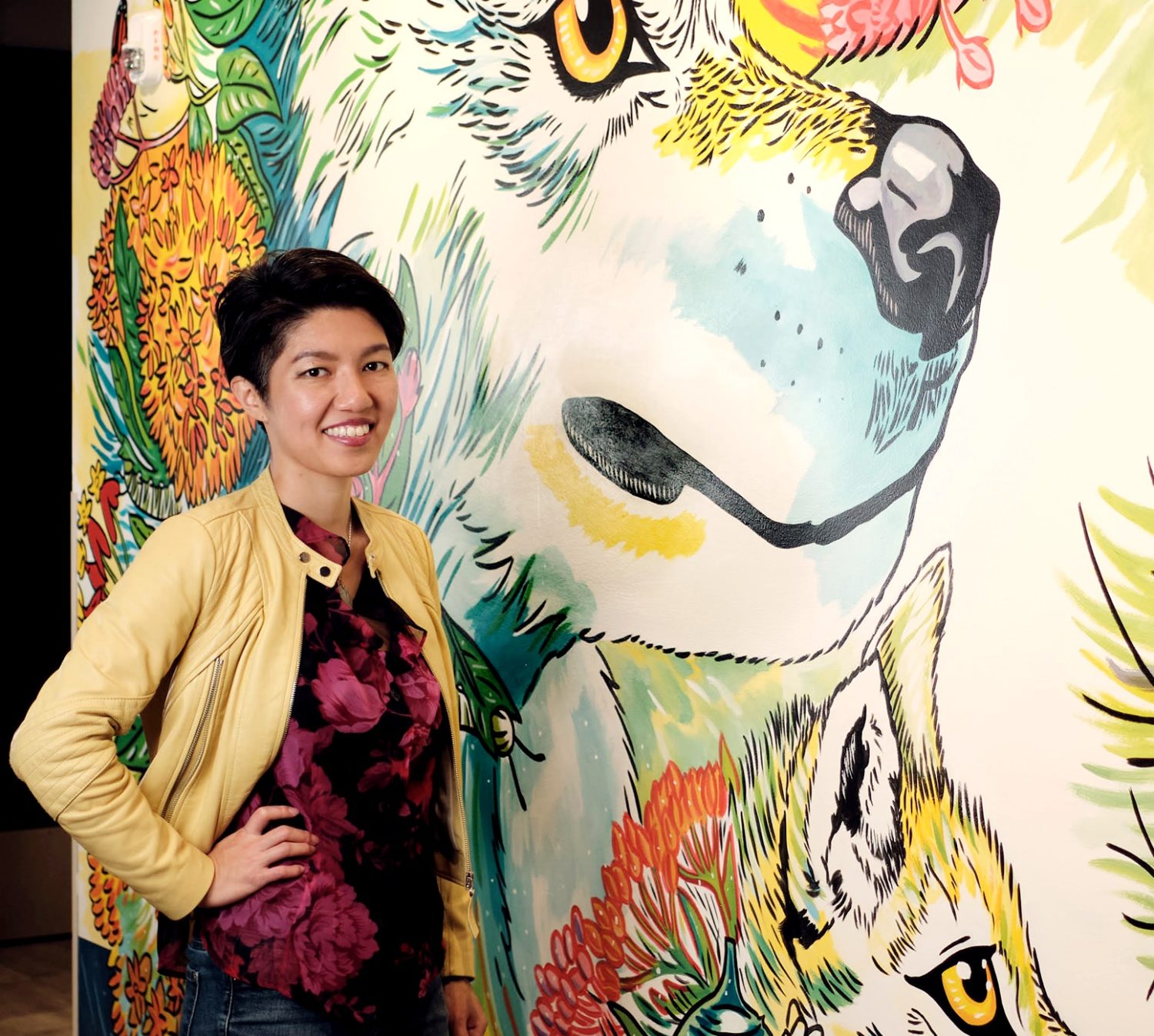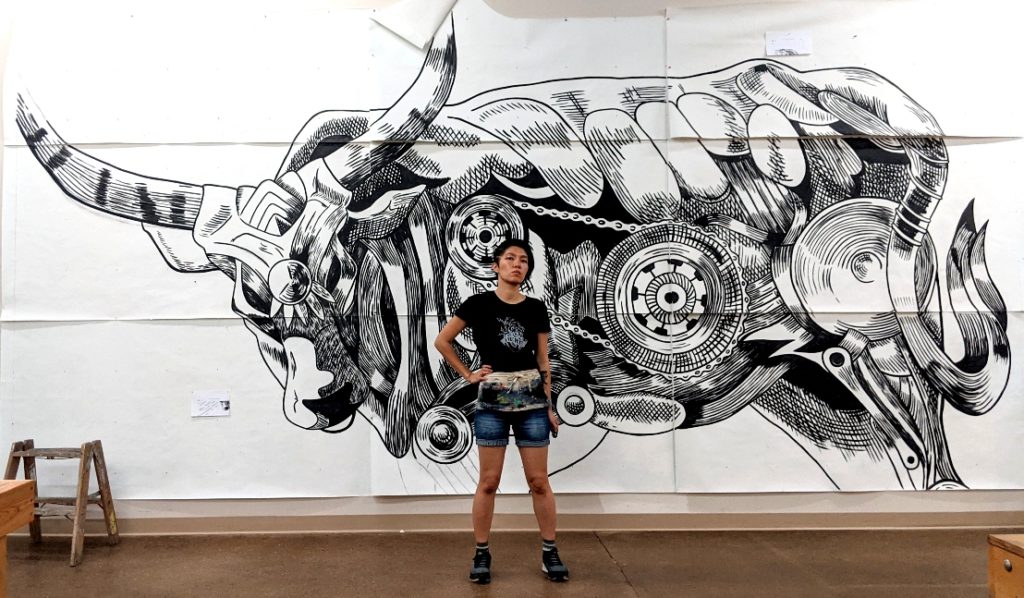
For Madison-area artist, creative director and entrepreneur Jenie Gao, one of her goals is get the local business community to move beyond symbolism and tokenism and work with artists in a way that is responsible, meaningful, and visionary. To get there, she says, that will involve being critical and introspective of the current situation in Madison and what it lacks.
“Because the arts are underfunded in Wisconsin, any time there is an art opportunity or a big art event in Madison, people likely support it and they don’t look at the system underlying it,” Gao tells Madison365. “I think people also get scared sometimes … if they critique something that is problematic then there won’t be another art opportunity again because it seems so rare in this city.
“When, in reality, we should be critical of these things. In critiquing things, it doesn’t mean that we don’t want these events to happen. We should be critical and we should be mindful that we’re not duplicating the same exploitative structure that we’ve had before simply because we want more art in the city,” Gao adds. “We don’t need to settle for less than what equitable looks like.”
Gao will tackle a variety of topics as she hosts an event titled “Lodgic Everyday Leaders: Invest in and Cultivate a Diverse Arts Community with Jenie Gao” on Wednesday, July 14, at noon. The event will take place at Lodgic Everyday Community, a non-profit on Madison’s near west side that offers shared workspace, full-service dining and flexible drop-in child care.
“Lodgic was interested in seeing what type of programming and artists I could bring into the space and also for the business community in Madison to learn about how artists in businesses can work together to diversify,” Gao says.
The event will be both in-person at Lodgic, located at 2801 Marshall Ct., just off University Ave., and live-streamed so that people can participate virtually. It will be a conversation format and Gao will pull from her writing, research, and work as a full-time artist-entrepreneur.
“It’s going to be a fireside chat. One of the staff members at Lodgic will be interviewing me about representation and the challenges that artists face in the field,” Gao says. “We will talk about some of the equity issues. For instance, the thought that most people don’t associate art with labor that needs to be paid and how that can harm the goal of representation. I’m going to be talking about how representation without compensation is tokenization … how these relationships between artists and businesses can be more partnerships and not fall into the same exploitative roles that have happened historically.”
Gao says that she will touch on topics including artists’ equity, racial justice and representation, and healthy collaborations and partnerships between artists, communities, and organizations.
“Many of these topics people are afraid to talk about in public. I talk with artists all the time who won’t charge for their work; even if they know they are putting a lot of labor into something. They just won’t charge for it … essentially thinking that they can’t charge for it and if they do this for free now that the company that they are working with now will pay them later,” Gao says. “The reality is that the company has not paid them before, are not paying them now and will not pay them in the future. And what standard you set today determines what you will be worth later.
“It’s coming up more and more – especially after 2020 – that there are so many organizations that want to put people of color up on a pedestal to present that image, co-opt that image of progressiveness via this individual that they’ve ‘invited to the table.’ And then they don’t pay them. Or they don’t pay them properly,” Gao continues. “Again, representation without compensation is tokenization.”

Businesses, nonprofits, and municipalities frequently reach out to local artists to build excitement for a particular cause. But are the artists getting properly compensated for their time and effort? Gao says when she gives talks like this, she wants to reconcile bringing art into the labor conversation.
“Artists are often not even seen in the labor conversation. It’s totally separate,” she says. “You see the State Street murals that were done for free or the artists were underpaid. You see other projects like the Bucky Badgers that were done for super cheap. But the artists don’t get paid anything. We’re not talking enough about this free and underpaid labor that is used for placemaking and development in our city.
“And now we’re putting out labor specifically on BIPOC artists to do this work – underpaid or unpaid – and it’s literally getting used to change our cities and enhance the value of our cities and improve revenues and attract customers to neighborhood and downtown districts to make them more vibrant and desirable … all on the backs of BIPOC labor,” Gao continues. “Which, historically, has always been a problem.”
Gao says that they will also be taking questions from the attendees whether they be in-person or virtual.
“One of my goals for this event is to bring the arts into the labor conversation. I want to use this time to give people some examples on how you can work with artists of color fairly and in a respectful way and not just to symbolically co-opt their images,” she says. “If you’re making the effort to invite people into these spaces, why not work on changing systems at the same time as you do that? We need to present options for people on how they can start building equitable ways to work with artists of color.”
For more information on “Lodgic Everyday Leaders: Invest in and Cultivate a Diverse Arts Community with Jenie Gao,” click here.



